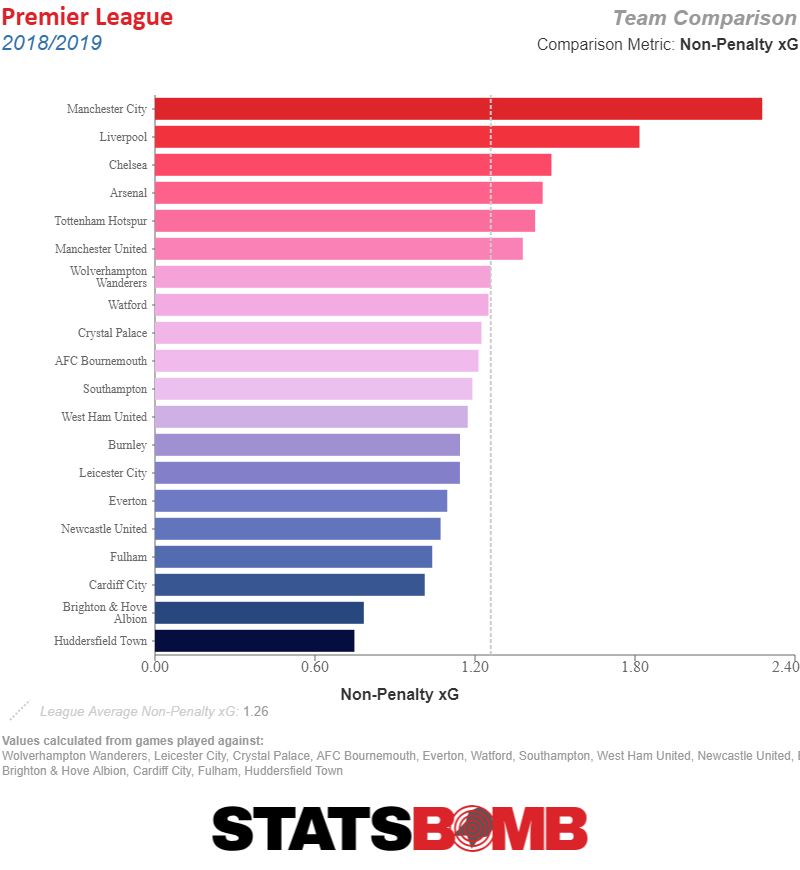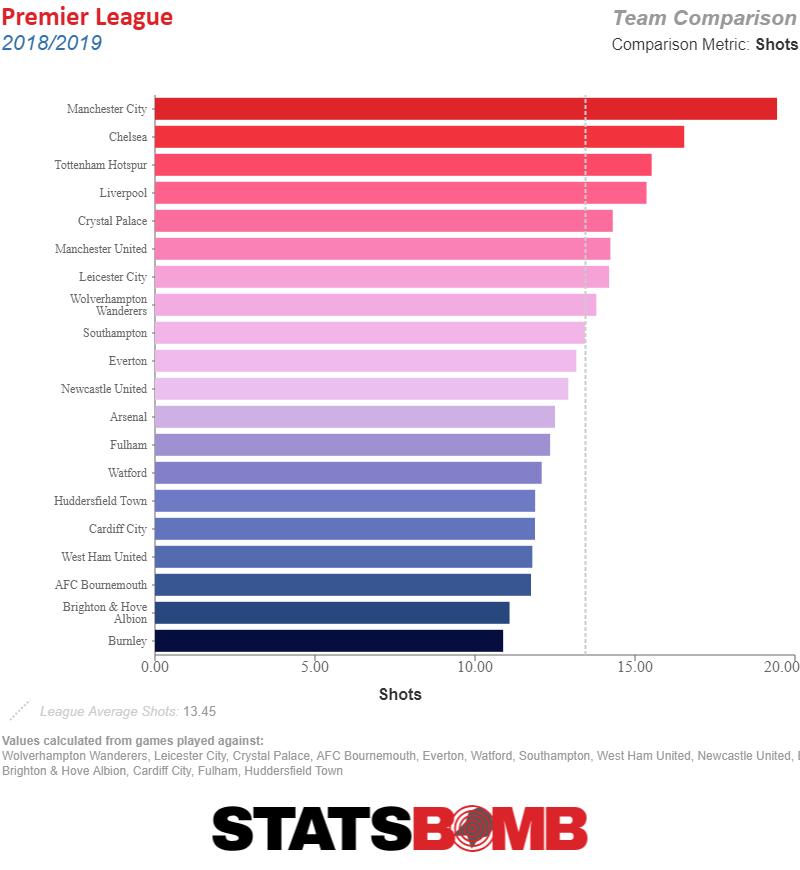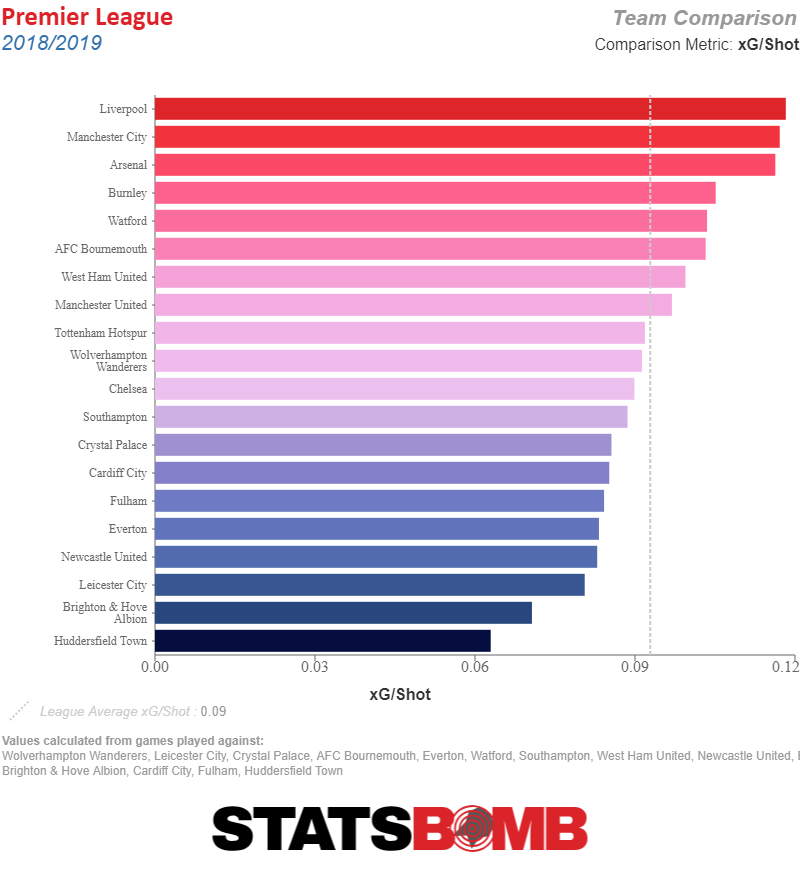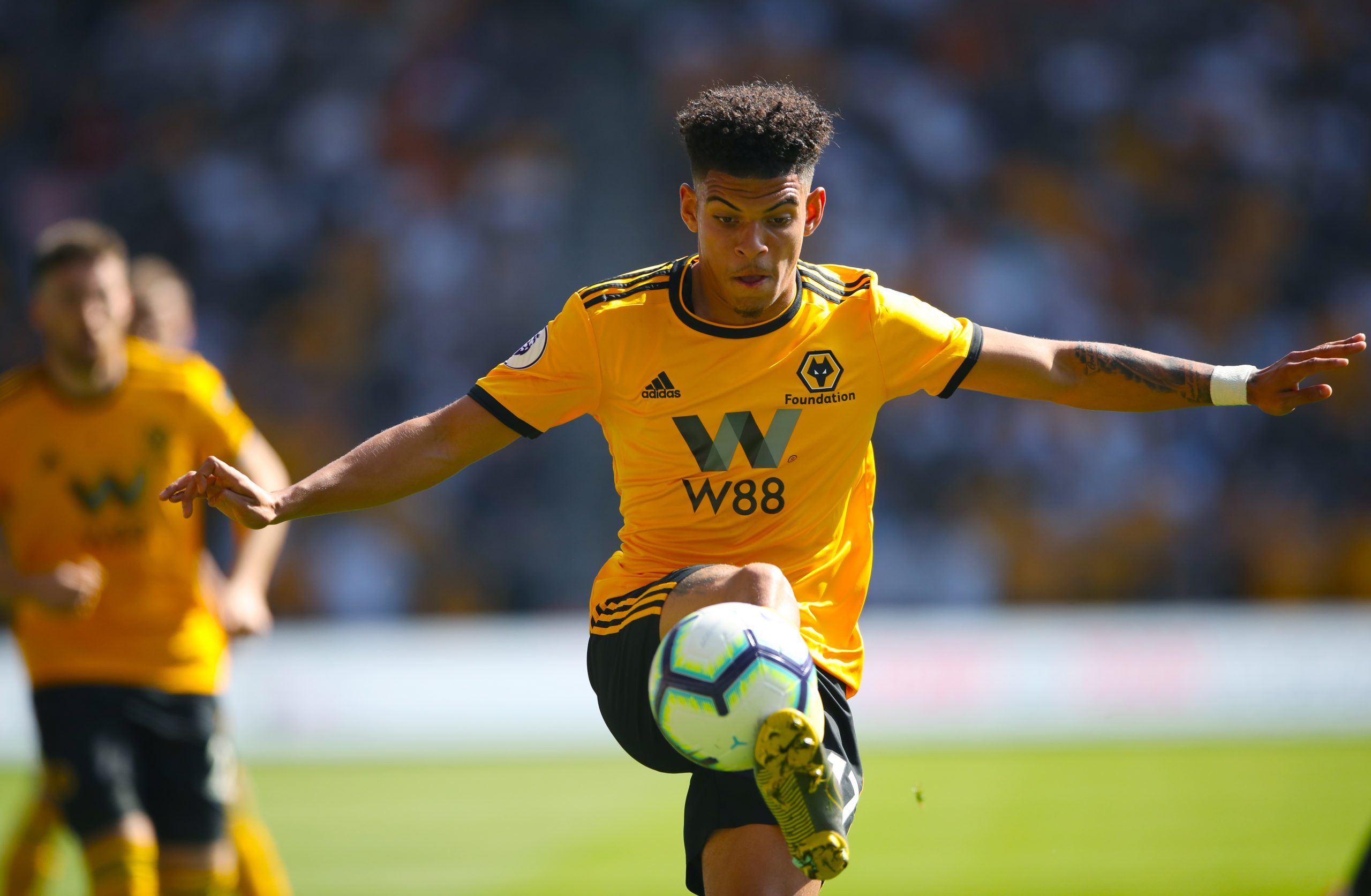The case that Wolverhampton Wanderers are the seventh best team in the Premier League is an easy one to make. They’re seventh in the table, you don’t get a better intuitive starting point than that. The question, as they look towards next season is, how much better can they become?
There’s an interesting dichotomy to Wolves results. When they go toe to toe with England’s biggest clubs they are consistently able to put up big results. At the same time, the gap between Manchester United in sixth and Wolves in seventh is a massive 13 points. Wolves recent history backs this up. Over their last six matches they’ve taken a whopping seven points from big six sides, with home wins against both Arsenal and Manchester United as well as a draw against Chelsea at Stamford Bridge. But, in their other three matches they took a grand total of a single point, losing away to Burnley and Southampton while drawing at home against Brighton and Hove Albion.
The results seem to suggest that Wolves are a team built on a very strong defense, but one that has trouble transitioning into attack against weaker sides. The numbers, at least to a certain, extent back this up. The top six have spent the season absolutely beating up on everybody else. Looking at expected goals per match against only the bottom 14 teams, there’s a real gap between them and the top six. They’re still the seventh best team when it comes to scoring on the best of the rest, but if they want to be on par with the best sides, they’ve got work to do.

Against good teams, Wolves can leverage their defense into creating counterattacking opportunities. They’re so good at absorbing pressure that they can invite teams onto them, and then attack into space using only three or four players. But, against everybody else, Wolves are left having to create their own space. They’re great at exploiting the holes teams give them, they’re less strong when they need to break through the wall themselves.
Theoretically speaking there are two ways to deal with a committed defense. Either ramp up the number of shots, a strategy that can be combined with remaining structurally sound defensively, or ramp up the positional risk taking to try and create great shots despite the number of players committed to stopping the attack (or be Manchester City and do both). Wolves do neither.
Against fellow teams in the bottom Wolves take just under 14 shots per match. That’s eighth best in the league.

That’s a fine number, and with the sides stellar defense it’s absolutely enough to keep them right there competing for the best of the rest, probably going to qualify for Europa League trophy. It would even be enough to push them towards the top six if they were augmenting it by taking great shots. The problem is, they aren’t.

Looking at the two tables makes the challenge ahead for Wolves crystal clear. If they want to run with the big boys they’re going to need to do something to juice up their attack against everybody else. Chelsea piles on the shots, Arsenal and Liverpool commit to getting high quality looks (Arsenal by sacrificing their defense and Liverpool by being awesome). City do both. Manchester United and Spurs aren’t quite as extreme, but rather are somewhat better than Wolves in both departments.
It should be possible for Wolves to overcome that challenge. This team, after all, didn’t simply defend their way to promotion. In the Championship they were a juggernaut on both sides of the ball. There are essentially two ways they might approach the problem, one is tactical and one is personnel. Or, possibly more likely, they’ll look to do both.
First, they could just continue to play exactly the same way but upgrade some of their players. In attack Wolves rely on their front two of Raul Jimenez and Diogo Jota to do the majority of the work, supported first by right wingback Matt Doherty, and then by midfielder Leander Dendoncker from midfield. Dendoncker’s midfield partners rarely get forward, and the left wingback is consistently more conservative than the attack first Doherty. Either upgrading Dendoncker (who is himself technically on loan from Anderlecht) to a more complete and dynamic midfield option, or doing the same at left wingback, might boost the attack all by itself. Wolves will need to add depth to their thing squad anyway, and adding pieces at the top of the depth chart might solve the attacking dynamism problem.
Secondly, they could loosen the tactical shackles they’ve placed on themselves. A little less focus on their defensive structure might make their defensive structure slightly less sound, but allowing a non-Dendoncker midfielder to get forward from time to time would likely more than make up for it. It’s possible that this will happen naturally. This is, after all, Wolves first season in the top flight. It was reasonable for them to treat away matches against pretty much everybody as affairs to be approached cautiously. Next season, with higher expectations, the team should be less interested in approaching matches from a defense first, happy just to get a draw approach. That doesn’t mean they should go hog wild and starting throwing eight men forward, but that they should be more willing to try and ratchet up pressure in more situations.
Those two options feed off each other. If they upgrade their talent either in central defense or midfield, it’s possible they might be able to play a somewhat more expansive game without sacrificing the superior defense that’s gotten them to this point. What Wolves can’t do is invest in talent that would allow them to play more expansively while not giving them the freedom to do so. That’s how you waste money and tread water, rather than continuing what has been a meteoric climb.
The exciting thing for Wolves is that their recent history suggests they have the capability to ratchet up the attacking intent if they choose to do so. It’s understandable that they didn’t this season. Next season there’s at least a chance they could build the squad that supports that approach. And if they do, there’s no reason they couldn’t close the gap to the top six, and with a couple of breaks, join the upper tier of the Premier League themselves.
